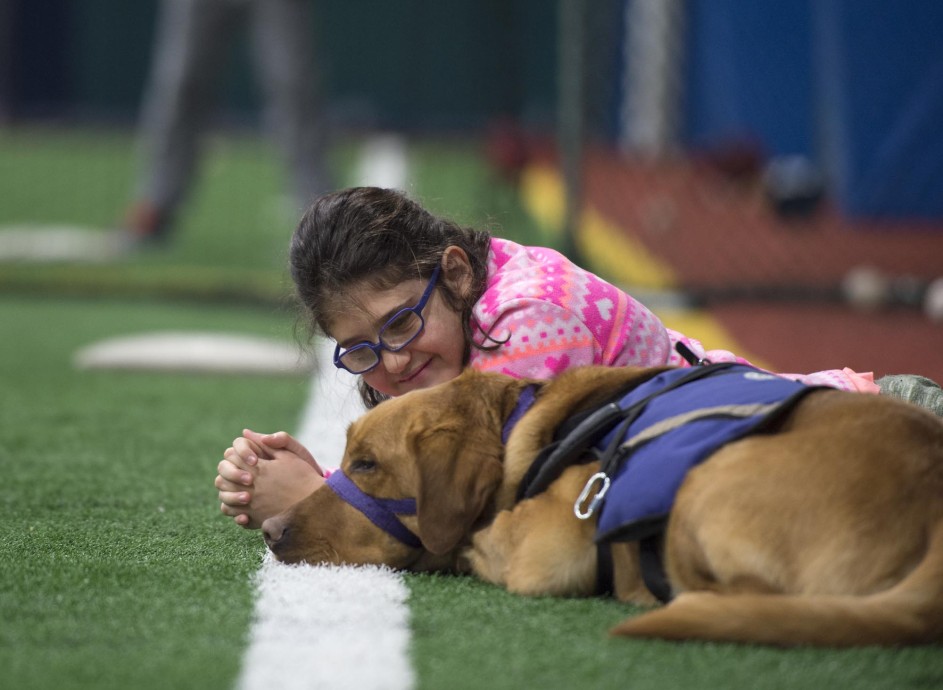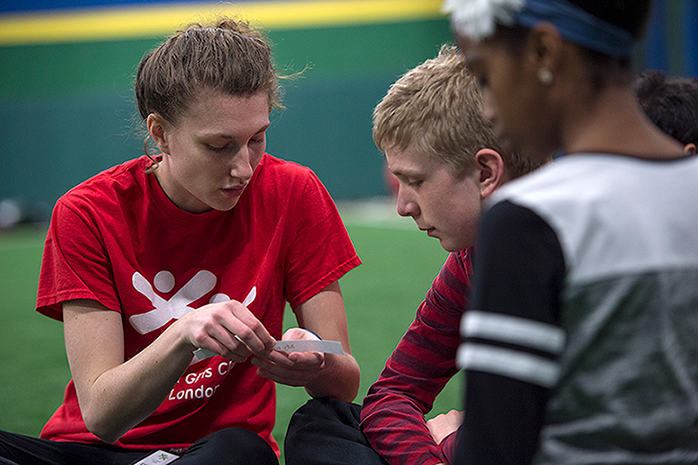Autism and Behavioural Science (Online)

*Domestic applicants include Canadian citizens, permanent residents, protected persons and Convention refugees.
This one-year Ontario College Graduate Certificate program is delivered through synchronous online scheduled classes (occurring in the evenings, EST). The program develops advanced knowledge of Autism Spectrum Disorder (ASD) and awareness of effective intervention techniques via two field placements and academic study. The field placements are not online and may be completed in your own community; Fanshawe will even aid in securing the field placements, if needed.
The online program focuses on learning and teaching skills to decrease challenging behaviours for persons with autism and other disabilities. Students will learn foundational theories of practice in their first five courses followed by four additional courses in application of theories. You will gain knowledge on the theory of Applied Behaviour Analysis and specifically how to support those with autism and other developmental disabilities. Students will learn to deliver support across all age sectors (children, youth, and adults).
Because this is an online program, students who display a high level of self-discipline, motivation and organization, are able to communicate effectively through writing, work well with others and are able to commit the necessary time toward each course have proven to be successful in this program. Check out our blog to see if online learning is right for you.
Graduates have highly specialized areas of knowledge in ASD and Applied Behaviour Analysis (ABA) to implement behaviour strategies, understand evidence-based treatments for individuals with ASD, collect data and work with families on implementing behavioural strategies. As a result, graduates are well-prepared to begin their career in the autism sector are in high demand. Graduates find employment as supervised instructor therapists/behaviour technicians with autism services, working in school boards delivering programs for individuals with autism, support staff in community agencies and educators in early childhood programming.

The graduate has reliably demonstrated the ability to
1. Assess and analyze the characteristics, skills, and behaviour of individuals with ASD to effectively implement evidence-based behavioural interventions.
2. Design and implement effective behavioural intervention plans under appropriate supervision and based on the principles of Applied Behaviour Analysis (ABA).
3. Evaluate the effectiveness of behavioural intervention plans based on the principles of ABA.
4. Work collaboratively with families, teams, service providers, and the broader community to respond to the learning and behavioural needs of individuals with ASD.
5. Design, implement, and evaluate as part of a team, ABA based transition plans for individuals with ASD.
6. Comply with established ethical principles and professional guidelines
7. Provide leadership in the promotion and provision of services to meet the needs of individuals with ASD and their families.
8. Evaluate empirical evidence in order to select appropriate interventions for individuals with ASD.
Jocelyn Prosser
| Test | Score |
|---|---|
| TOEFL iBT | 88 |
| IELTS Academic | Overall score of 6.5 with no score less than 6.0 in any of the four bands |
| CAEL | Overall score of 70 with no score less than 60 in any of the four bands |
| PTE Academic | 59 |
| Cambridge English | Overall score of 176 with no language skill less than 169 |
| ESL4/GAP5 | Minimum grade of 80% in Level 9, 75% in Level 10 |
| Duolingo | Overall score of 120, with no score lower than 105 |
| LANGUAGECERT | Overall score of 70 with no score less than 65 in any of the four skills |
This program has 2 field placements:
- Field Placement 1 (140 hours);
- Field Placement 2 (210 hours).
In order to go on field placement, you are required to complete the following pre-placement requirements:
1. Immunizations
**See Professional
Practice Health Form below to bring to your health
care provider with additional details.
- Tuberculosis
- Mumps, Measles, Rubella
- Varicella
- Tetanus/Diphtheria and Polio
- Pertussis
- Hepatitis B
- Influenza (highly recommended)
2. Standard First Aid Certificate and CPR - Level C
3. Vulnerable Sector Police Check
**Must have been completed within one year of your final day at
field placement
4. Non-Violent Crisis Intervention
List of
acceptable Nonviolent Crisis Intervention certifications available
here
5. Sign Placement Agreement (below)
All certifications must be valid until the last day of your final field placement. A more detailed guide for each section listed is provided below in the Guide to Completing your Professional Practice Requirements.
Once you have gathered the above information, you will be required to upload the documents and meet with a health professional to get the documents verified. To complete this, book an appointment with Synergy Verified:
1. Please visit https://verified.sgappserver.com/
2. Click "Forgot Password"
3. Use your FOL email address to change your password
**If you continue to have issues, please reach out to www.synergyhelps.com.
Deadlines:
- October 15 for AUT1 students;
- Or at least four weeks before you begin your field placement (for part-time students).
- December 1 for AUT3 students.
| Level 1 | ||||
| Take all of the following Mandatory Courses: | ||||
| BSCI-6001 | Applied Behaviour Analysis Intro | 4 | ||
| This course introduces the student to the principles of Applied Behaviour Analysis (ABA), which is the basis for Intensive Behavioural Interventions (IBI). In addition to basic terminology, students will learn when and how to use these techniques appropriately. Students will also learn how to access and interpret journal publications in the field of autism and Applied Behaviour Analysis. | ||||
| BSCI-6002 | Autism Spectrum Disorder (ASD) | 3 | ||
| This course examines Autism Spectrum Disorder (ASD) according to core features and diagnostic criteria. This course provides an introduction to a neurodevelopmental and behavioural understanding of individuals with ASD. | ||||
| BSCI-6004 | Working With Families & Teams | 3 | ||
| This course presents the student with theories, terminology and applications underlying current approaches to teamwork and working with the families of individuals with Autism Spectrum Disorder (ASD). The focus will be on effective collaboration with a multi-disciplinary team, which is essential to successful Applied Behaviour Analysis (ABA). Students will develop the interpersonal, job-oriented skills necessary to problem-solve as team members in a flexible, empathetic, resourceful, and productive manner. | ||||
[1] Total program costs are approximate and subject to change. They do not include additional fees such as the health and dental plan, bus pass, or general expenses. Learn more about ancillary and additional fees.